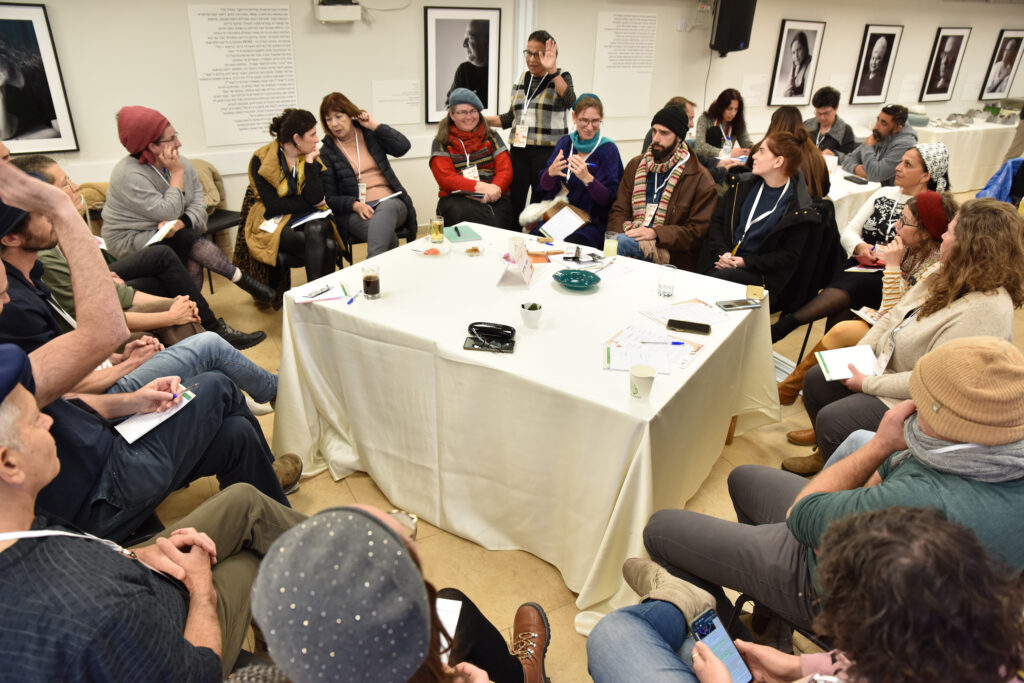‘HAMANBETA’ – an accelerator for social-Jewish- Israeli entrepreneurship led by ‘Rashut HaRabim’ and the Sapir Center for Jewish Culture and Education, cultivates and accompanies innovative initiatives in Jerusalem in the field of Israeli Judaism.
The initiatives involve collaboration between community centers, social organizations and entrepreneurs from the field of Israeli Judaism who meet with the goal of creating a solution to tangible needs in Jerusalem, and to come up with the most creative and innovative solution that has significant growth potential.
Objectives:
- To encourage social entrepreneurs to create innovative programs in the field of Jewish-Israeli culture.
- To support innovative ways of addressing questions of Jewish-Israeli culture.
- To create an active and original community of activists that will lift the field of Jewish renewal in Jerusalem to the next level.
Target Audience
- Jerusalem entrepreneurs and organizations
- Communities and individuals in Jerusalem
During the program’s years of operation, various formats were held that create a connection between content and ideas of Israeli Jewish culture and organizations and social entrepreneurs, to develop diverse projects.
At the outset of the initiative, entrepreneurs were chosen who participated in the accelerator where they engaged in Israeli-Jewish content and content related to entrepreneurship and project building. At the end of the accelerator, the entrepreneurs created projects that were then implemented.
In the next stage, and out of a wish to create sustainable projects, a new format was developed that includes several stages:
First stage: Meetup of entrepreneurs – attended by the representatives of future initiatives. The meetup includes a one-day seminar on different perspectives of Israeli Jewish entrepreneurship and joint sessions discussing needs that arise from the field, leading to the growth of collaborations and relevant initiatives
Second Stage: Selecting the initiatives – several initiatives were selected from the initial meeting and then submitted to the steering committee which chose the most suitable ones in terms of content, scope and influence in Jerusalem, and chances of success.
Third Stage: Accompanying the initiatives – the project team accompanies the initiatives and provides professional and content support. Because the initiatives were launched in the summer of 2023, some were impacted by the events of the “Swords of Iron” War.
Expected Results:
The participants start with an idea for a project which they are expected to develop and begin experimenting with partners and funding, and to begin implementation.
In Addition: A Community Network for Israeli-Judaism Entrepreneurs
Following the completion of the first year of training in HAMANBETA, the need arose to establish a network of entrepreneurs in the field of Israeli Judaism to strengthen the innovative activity in the field of Israeli-Jewish culture.
Dozens of entrepreneurs from around Israel (and even some from overseas) joined the network. The project offers them:
- Monthly seminars in the fields of community, social entrepreneurship, and Jewish-Israeli culture
- A WhatsApp group for relevant updates
- Updates and invitations to participate in events, seminars, and other opportunities for entrepreneurs in the field
- Contact details of all the entrepreneurs and personal connections to facilitate active involvement


